In this article
Welcoming a new kitty to the family is exciting for the humans in the household. The other resident cats? Maybe not so much. While some cats get along instantly, others need some time to warm up to one another.
It’s entirely normal for your cats to hiss when they first meet and even for days following. While most people consider hissing to be a sign of aggression, it’s actually just another form of communication your cats have with one another (and with their humans).
While hissing is pretty standard for cats when exposed to something (or someone) new, you’re probably wondering how much you should tolerate. Read on to learn more about why cats hiss in the first place and what you can do to help your pets become comfortable with each other.

How Much Hissing Should Be Expected When Introducing Cats?
As mentioned in our introduction, hissing is entirely normal behavior to notice in both your new kitty and the resident cats in your home. Your cats may hiss or even swat at each other for several weeks until they’ve had the time to really get to know one another.
Hissing on its own isn’t aggressive, but it can be your pet’s way of laying the ground rules for this new animal taking up their space. Think of hisses as a defensive gesture, as cats feeling threatened in some way are more likely to hiss. It’s your cat’s way of expressing discomfort, fear, or stress. Hissing on its own isn’t usually cause for action, but if aggressive behaviors or postures accompany your cat’s hisses, you’ll need to carefully intervene. Growling, hair standing on end, tense muscles, and pinned ears may all indicate aggressive behavior.
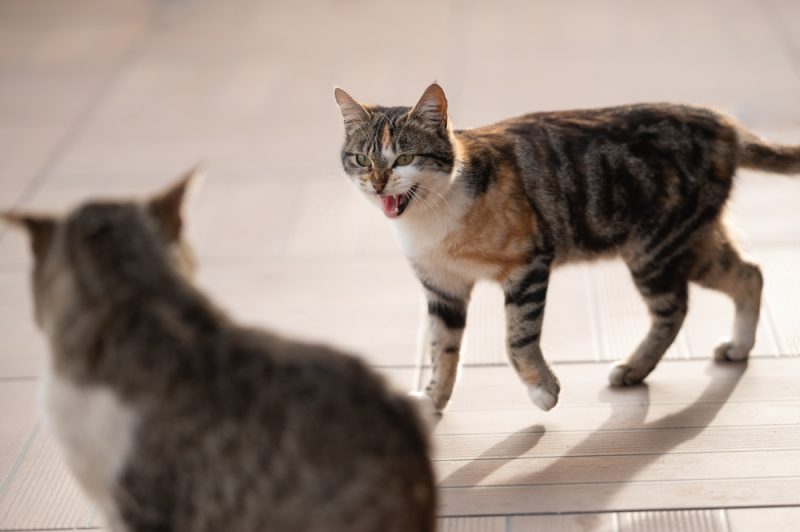

Why Do New Cats Hiss at Each Other?
1. Their Routine Is Disrupted
Whether you realize it or not, your resident cats are absolutely creatures of habit. They don’t typically like change and can feel very anxious, stressed out, and confused when new additions are brought into the home. Your resident cats may need a little more attention than usual when you get a new pet.
2. They Feel Trapped
If you’re rushing to introduce your resident cats to your new fur baby, you may inadvertently be making both parties feel trapped. Your resident cats need time to get used to the idea of sharing their space with another being, while your new kitty is likely already feeling stressed from being placed in a new home. If you’re forcing your pets to meet when stress is already high, it can make your pets more prone to hissing and even aggressive behaviors.
When introducing your pets, be sure never to block the exit so they know they can leave and go to their safe space without intrusion. Also, give them time to come to each other rather than you pushing them together. Allowing them to interact on their own time may help smooth the process.
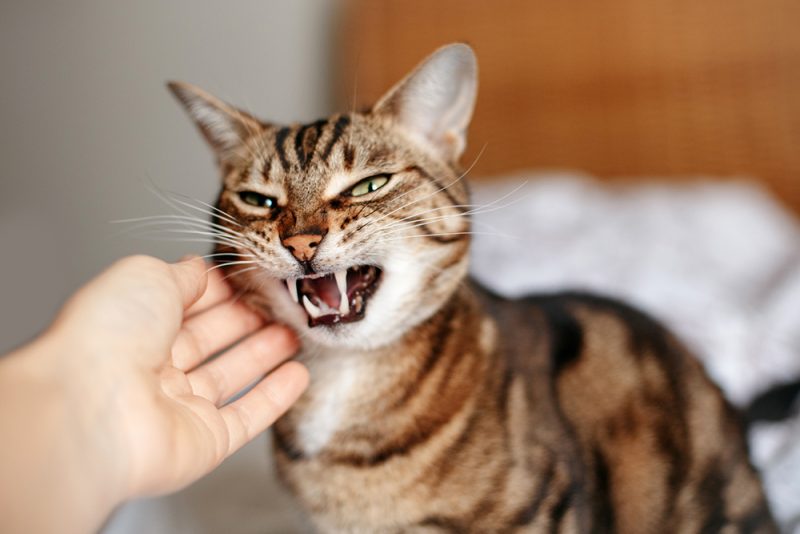
3. They Feel Their Space Is Being Encroached Upon
Another potential reason your resident cat is hissing is that they feel their space is being encroached upon. They have, after all, had your home to themselves for their entire life, so it makes sense why they’d be reluctant to share their things with your new pet.
Hissing can be an effective way to establish or reinforce the social hierarchy among the cats in your home. Dominant cats will sometimes hiss to assert their position over others. Other territorial behaviors dominant cats engage in include hoarding toys, scratching objects to mark their territory, urine spraying, growling, and instigating fights.
4. They’re Setting Boundaries
Cats are notoriously territorial and will sometimes hiss at one another as a way to establish boundaries and to establish their authority. A hiss is a fast and effective tool your resident cat can use to tell the newcomer to stop trespassing.
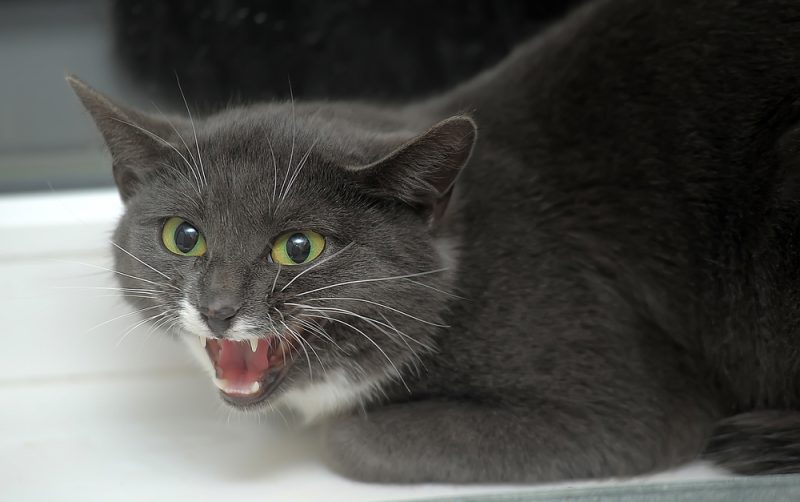

What Should I Do if My Cats Are Hissing at Each Other?
There are some other things you can do if the hissing isn’t dissipating as quickly as you’d like it to.
Sit It Out
Since hissing on its own is just a form of communication, you don’t need to do anything—at least not right away. If the hissing is constant and doesn’t die down after a few minutes, separate the cats and give them time to calm down. Of course, if aggressive behaviors or postures accompany the hisses, you’ll need to intervene as soon as possible to prevent a fight.

Introduce Them Slowly
Introductions need to be done very slowly and deliberately. There is a process for introducing cats to one another, and if you rush it, you’re potentially putting your pets at risk as they may be more likely to be aggressive with one another.
The cat showing the most fear and mistrust should set the pace for the introduction. Remember that the process can be long, depending on your pet’s personality. It can take several days, weeks, or even months for your cats to learn to live harmoniously alongside one another.
Don’t Be Afraid to Do Reintroductions
If you’ve rushed the introductory period and now your cats are hissing at each other all day long or even fighting, it’s okay to separate them and begin the whole process all over again.
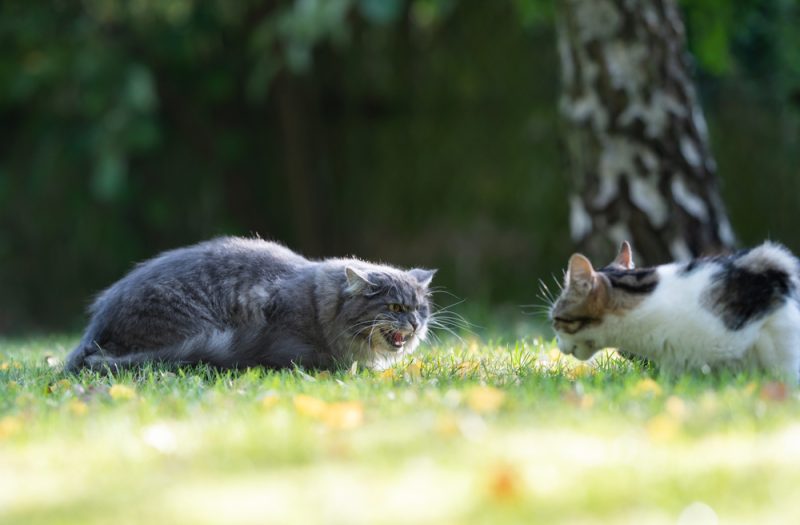
Provide Enough Resources
Aggression and hissing can sometimes result from your cat’s feeling they have to share their resources. For this reason, you must ensure each of your pets has access to their own things. Each should have their own litter box, plus one. So, if you have three cats, you’ll need four litter boxes. They should also each have their own food bowl. Make sure you have enough toys, scratching posts, and sleeping spots to go around, too.

Final Thoughts
If you’re in the midst of the introductory process, pulling out your hair, and wondering, how long can the hissing actually last, know this is likely to be just a short blip in the lives of your kitties. Hissing is an entirely normal response in cats, especially when they’re put into a new or stressful situation. When you’re bringing a new cat into your home, you’re inevitably placing stress on both your new pet and the resident cats, so some degree of hissing should be expected until they get to know one another.
Your cats need time to become accustomed to these living conditions. This is why it’s so important to introduce a new cat very slowly and deliberately. Let your kitties set the pace for the introductions, and never rush the process.
Featured Image Credit: Gurkan Ergun, Shutterstock



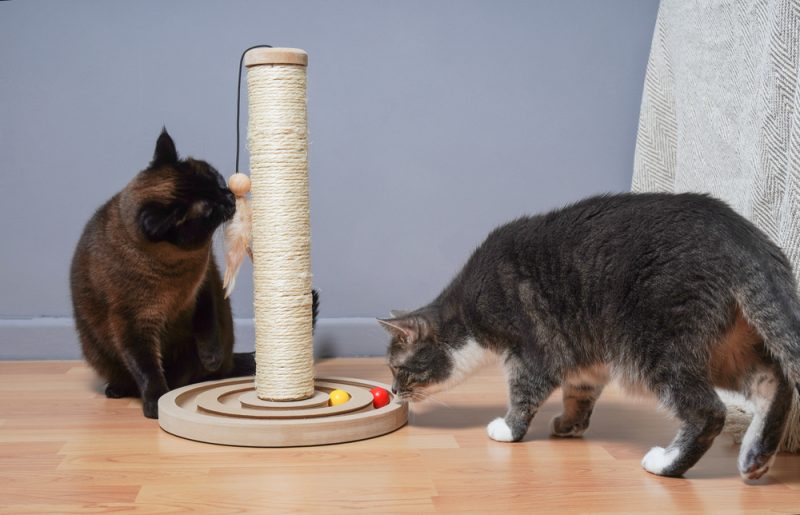





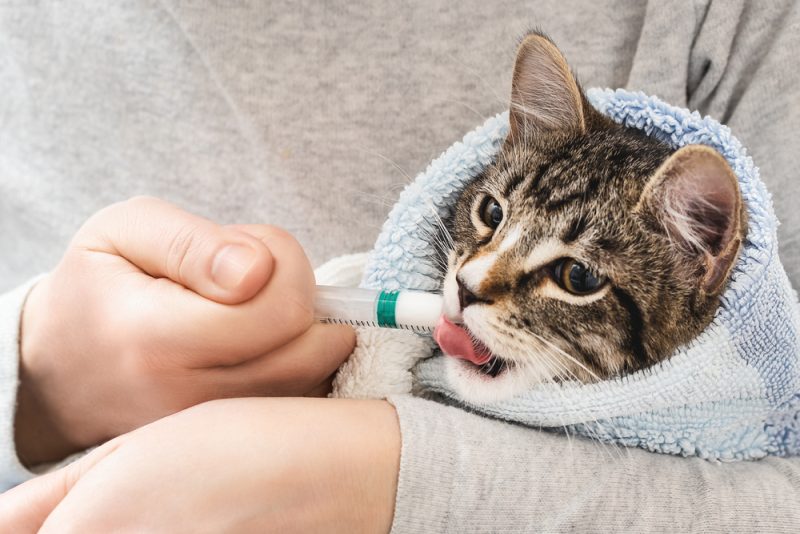
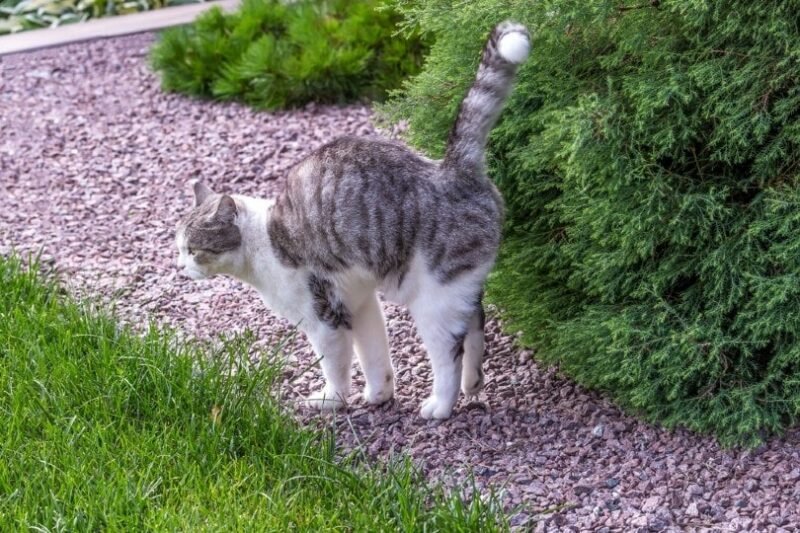

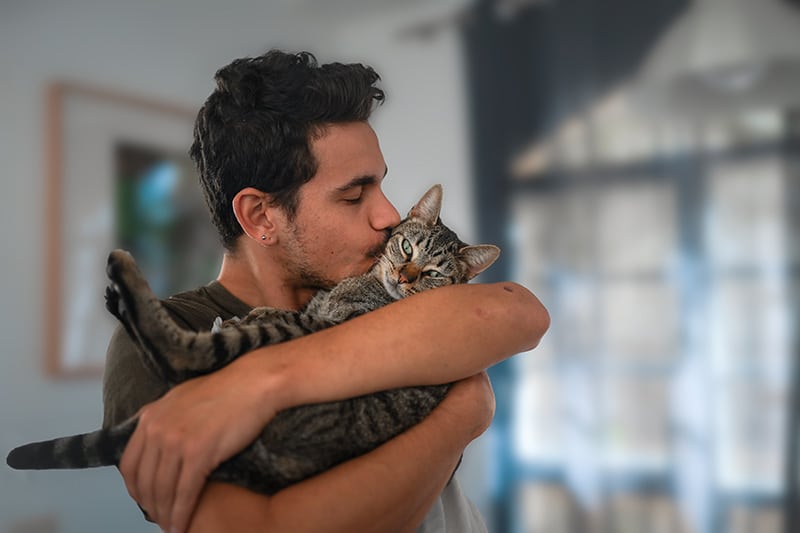
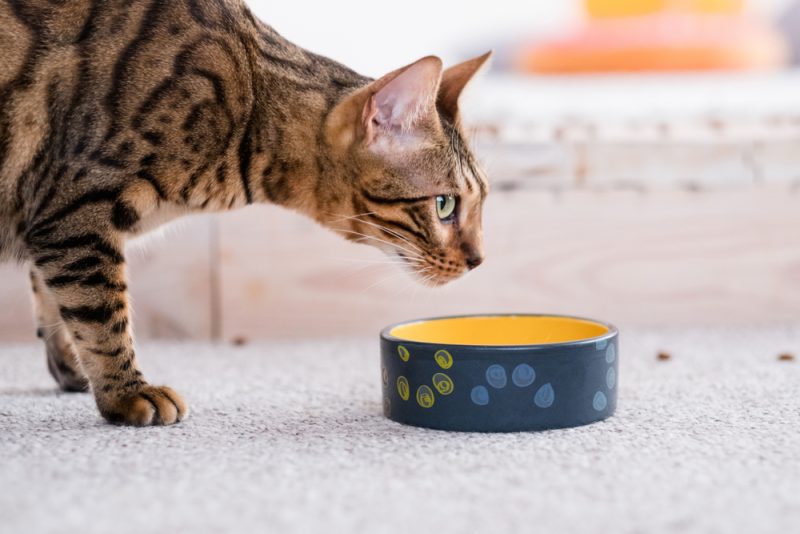





2 Responses
It's been 6 yrs and they still hiss at each other. For the most part they (2 females, older one was resident, younger was a rescue) have learned to live (or tolerate) each other without major issues. But certain situations will start the hissing match that very seldomly ends with a whao-whap if I am unable to intervene in time. The hiss will always occur if the they have to cross the others path or anytime they are within 2 ft of each other. And 90% of the time it's started by the resident cat. Frequently, when the realization is made there's going to be a close proximity situation, one or the other will run past stopping only when a 3ft or more space has been achieved between them. My guess, this is done to prevent the hiss all together. They will not seek attention at the same time and will not cozy up next to any human/other animals at the same time. When I first brought the rescue home I kept her in my room for the first 4 days with her own litter box and food bowls. I tried my best to introduce them slowly by taking the blankets/towel that the other had been using and laying out on the floor somewhere so that it could be well sniffed and investigated. Then after several days I let her out of the room but under careful supervision and allowed them to slowly build their own courage to sniff one another or interact. Which initially brought on the hiss from the resident cat, which I expected. However, If it's been 6 yrs and they still hiss at each other is it safe to say this behavior will never stop? I see disappointment in the rescue cat occasionally as it appears she would really like to have a friend and maybe even a playmate with the resident cat. But it's made very clear by the resident cat that this will never happen.
Hi Danelle Reed, yes it sounds like you tried a good socializing method. Some cats just never grow close to each other, cats have a territorial nature and some of them prefer to be solitary, while some can socialize with others, some will barely tolerate each other.